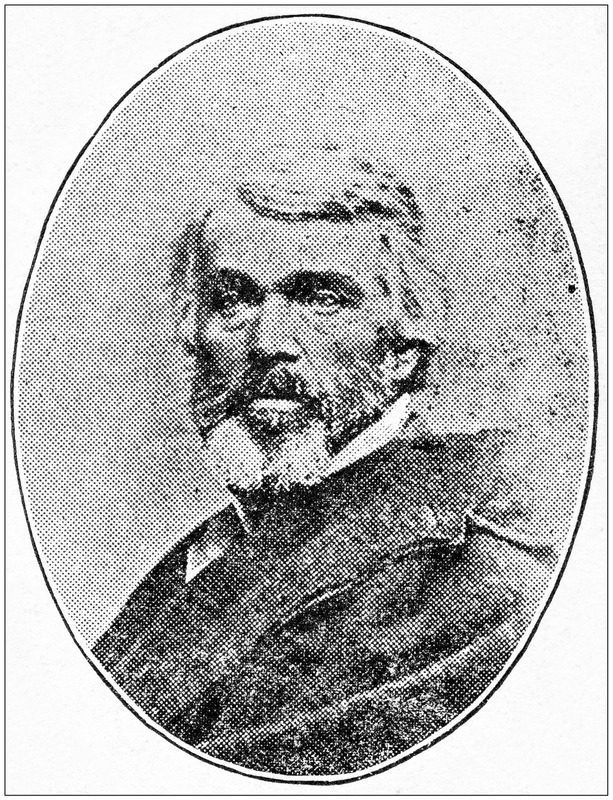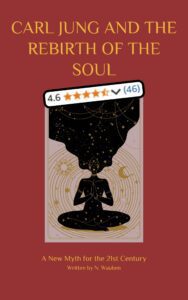Table of Contents
Introduction
Sartor Resartus, written by Thomas Carlyle and published in 1836, is a rather strange and complicated book. It depicts the story of a character called The Editor, who is discussing a book written by a fictional character with the name of Teufelsdröckh. Through the character of Teufelsdröckh we become familiar with the unique philosophy of Thomas Carlyle.
Teufelsdröckh, after experiencing several hardships and insecurities, decides to reject life. This rejection develops in an attitude towards life defined by Thomas Carlyle as the ‘Everlasting No’. Ultimately, after a long period of reflection, Teufelsdröckh, however, decides to say yes to life, culminating in a much more hopeful attitude towards life: the “Everlasting Yes’.
The thought process that Teufelsdröckh goes through during this transition is extremely interesting. Some unique philosophical insights are presented and analysed by Thomas Carlyle. As a result of several ideas put forward in Sartor Resartus, it can even be argued that Thomas Carlyle was one of the earliest explorers of existentialist philosophy. In this article we will discuss some of these insights presented by Thomas Carlyle.
“What is Philosophy throughout but a continual battle against Custom; an ever-renewed effort to transcend the sphere of blind Custom, and so become Transcendental?” (Thomas Carlyle, Sartor Resartus, p.196)
The Secret of Man’s Being
Thomas Carlyle argued that every individual will eventually come to question who he or she is and what his or her purpose is here on earth: “”With men of a speculative turn,” writes Teufelsdröckh, “there come seasons, meditative, sweet, yet awful hours, when in wonder and fear you ask yourself that unanswerable question: Who am I; the thing that can say ‘I’?” (p.42)
Up until this point, however, no answer has been given to this question through philosophy, according to Carlyle: “Pity that all Metaphysics had hitherto proved so inexpressibly unproductive! The secret of Man’s Being is still like the Sphinx’s secret: a riddle that cannot rede; and for ignorance of which he suffers death, the worst death, a spiritual” (p.43)
Thomas Carlyle indicated, however, that a clear answer to this question of ‘who’, ‘where’ and ‘when’, is, in fact, almost impossible to find. According to Carlyle these are merely superficial questions. The secret of man’s being can be found in the everlasting: “Where and When, so mysteriously inseparable from all our thoughts, are but superficial terrestrial adhesions to thought; that the Seer may discern them where they mount up out of the celestial Everywhere and Forever.” (p.43)
The true answer to this question, as argued by Carlyle, can therefore not really be expressed in words: “Think well, thou too wilt find that Space is but a mode of our human Sense, so likewise Time; there is not Space and no Time: We are – we know not what; — light-sparkles floating in the aether of Deity!” (p.44)
This is an interesting theory, and Carlyle appears to be one of the first to express this idea. As a result, he might be one of the first proponents of existentialism, and perhaps even absurdism, whose adherents argued that life is inherently meaningless, and any attempts at finding meaning are futile. “So that this so solid-seeming World, after all, were but an air-image, our Me the only reality: and Nature, with its thousandfold production and destruction, but the reflex of our own inward Force, the ‘phantasy of our Dream;” (Ibid)
Meaning can then, however, be derived by embracing this meaninglessness. This theory was later developed by Albert Camus, for example. You can read more about Albert Camus and absurdism in this post: Analysis of the Myth of Sisyphus.

Forwards! Despite all Insecurities
Teufelsdröckh continues to question his capabilities and the meaning of life. He argues that everyone has a certain inward talent and that one should try to find this talent. However, this is not an easy endeavour, and once such a talent has been found, it can only be put into practice when it fits with one’s external environment: “To each is given a certain Talent, a certain outward Environment of Fortune; to each, by wisest combination of these two a certain maximum of Capability.” (p.93)
Moreover, Carlyle observed that every individual has many capabilities, and it is extremely difficult to discern which capability is the one to pursue: “For, alas, our young soul is all budding with Capabilities, and we see not yet which is the main and true one.” (Ibid) This search for the ‘true capability’ might never result in a positive conclusion: “many so spend their whole term, and in ever new expectation, ever new disappointment, shift from enterprise to enterprise, and from side to side; till at length, as exasperated striplings of threescore and ten, they shift into their last enterprise, that of getting buried.” (Ibid)
Carlyle indicated that it can be increasingly more difficult to pursue these enterprises, for it might take a long time for any results to be noticeable: “But for me, so strangely unprosperous had I been, the net results of my Workings amounted as yet simply to – Nothing. How then could I believe in my Strength, when there was as yet no mirror to see it in?” (p. 126)
Although everyone might wonder incessantly whether one indeed has a certain value: “Hast thou a certain Faculty, a certain Worth, such even as the most have not; or art thou the completest Dullard of these modern times?” (p.126) Carlyle encourages us to go forward regardless: “Nevertheless still Forward! I felt as if in great haste; to do I saw not what. From the depths of my own heart, it called to me, Forwards!” (p.120)
Protest against Insecurity: The Philosophy of the Everlasting Yea
Thomas Carlyle, through his character Teufelsdröckh, described a mode of constant fear, resulting from these insecurities: “I lived in a continual, indefinite, pining Fear; tremulous, pusillanimous, apprehensive of I knew not what: it seemed as if all things in the Heaves and the Earth were but boundless Jaws of a devouring Monster, wherein I, palpitating, waited to be devoured.” (p.128) These fears and insecurities culminated in an outlook towards life characterized by an ‘everlasting no’: “To me the Universe was all void of Life, of Purpose, of Volition, even of Hostility: it was one huge, dead, immeasurable Steam-engine, rolling on, in its dead indifference, to grind me limb from limb.” (p.127)
All at once, however, a thought was presented to Teufelsdröckh:
“Wherefore, like a coward, dost thou for ever pip and whimper, and go cowering and trembling? Despicable biped! What is the sum-total of the worst that lies before thee? Death? Well, Death; and say the pangs of Tophet too, and all that the Devil and Man may, will, or can do against thee! Hast thou not a heart; canst du not trample Tophet itself under thy feet, while it consumes thee? Let it come, then; I will meet it and defy it.” (p.129)
This appears to be a logical conclusion drawn from the idea that the world is only an ‘air-image’: why should one live in fear? This thought of Teufelsdröckh resulted in him rejecting the ‘everlasting no’ and him protesting his insecurities and fears: “Thus had the everlasting no pealed authoritatively through all the recesses of my Being, of my Me; and then it was it that my whole Me stood up, in native God-created majesty, and with an emphasis recorded its Protest.” (Ibid) According to Carlyle this protest is one of the most important events of life: “Such a Protest, the most important transaction in Life, may that same Indignation and Defiance, in a psychological point of view, be fitly called.” (Ibid)
One of the very first self-help authors, Maxwell Maltz, in his book Psycho-Cybernetics attested to the power of such a philosophy. He observed that Carlyle is “telling us how we can maintain an aggressive, goal-directed, self-determining attitude even in the presence of very real and serious threats and dangers.” (p.241)
Conclusions
With his book Sartor Resartus Thomas Carlyle was ahead of his time in a philosophical sense. With his unique philosophy Thomas Carlyle was a pioneer of existentialist philosophy, in the way that he recognized the problems and insecurities created by an apparently meaningless world.
At the same time, however, he also proposed a solution similar to the solution later advocated by the absurdist philosophers: protest against this insecurity and move forward despite everything. Shake of all your fears and say yes to life: “Being aware of one’s life, one’s revolt, one’s freedom, and to the maximum, is living, and to the maximum.” (Albert Camus, The Myth Of Sisyphus, p. 61)
Thank you for reading! If you enjoyed this post then you might also be interested in Friedrich Nietzsche’s idea of the Eternal Reccurence, whiche you can find here: The Eternal Recurrence.

